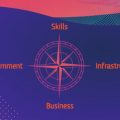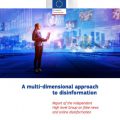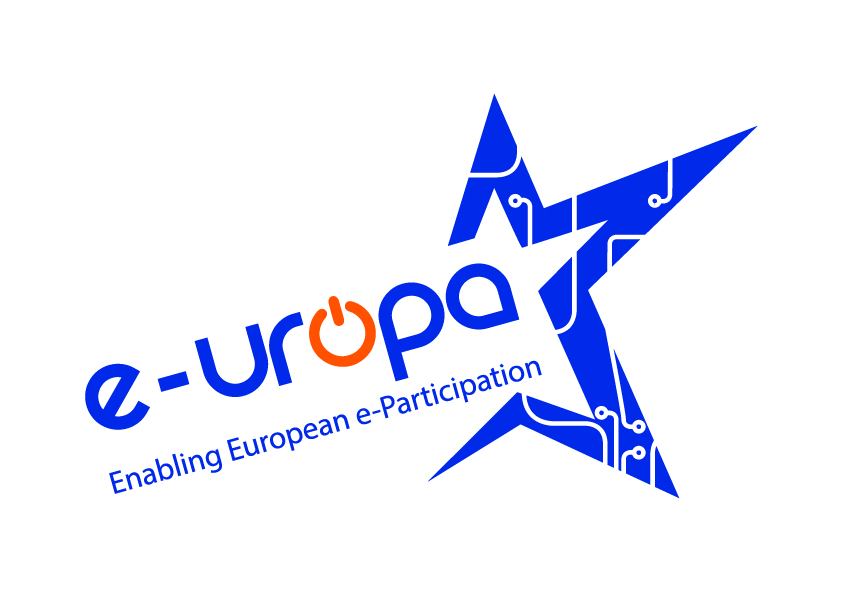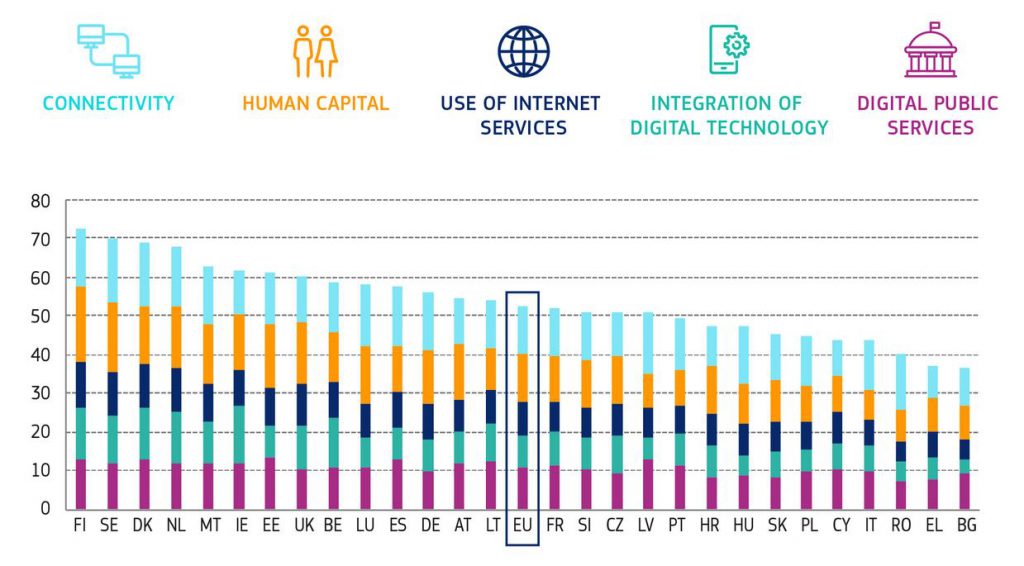
11 Jun Digital Economy and Society Index 2020
11 Jun, 2020
On 11 June 2020, the Digital Economy and Skills Unit of the DG CONNECT published the Digital Economy and Society Index, based on data collected by Eurostat in 2019.
Overall there is a slow progress in the acquisition of digital competences, as the number of EU citizens with insufficient digital skills drops by 1% from 43% to 42%.
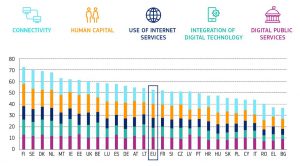
Image Source: DESI 2020, European Commission
In the report one can read that:
“Throughout the last 4 years, the level of digital skills has continued to grow slowly, reaching 58% of individuals having at least basic digital skills, 33% with above basic digital skills and 61% of individuals having at least basic software skills. The skills indicators are strongly influenced by socio-demographic aspects. For example, 82% of young individuals (16-24), 85% of those with high formal education, 68% of employed or self-employed people and 87% of students have at least basic digital skills. By contrast, only 35% of those aged 55-74 and 30% of the retired and the inactive possess basic skills.” (DESI 2020, Human Capital, page 4, our emphasis)
As far as regular internet users are concerned:
“In Member States such as Denmark, Sweden and the Netherlands, the vast majority of the population (95%) uses the internet at least once a week. Noteworthy increases in comparison to last year were recorded in Ireland (+8 percentage points), Spain and Hungary (+5 percentage points). However, in some Member States, over one quarter of the population still does not regularly go online (33% of Bulgarians and 28% of Romanians).” (DESI 2020, Use of Internet services, page 4, our emphasis)
This is the breakdown of the uses of Internet (DESI 2020, Use of Internet services, page 3):
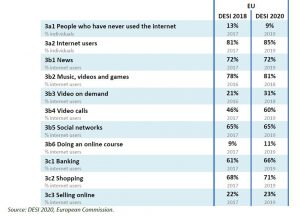
DESI is as usual a fundamental source of information for all those engaged in the teaching of digital competences. This year, however, one would hope that the Digital Economy and Skills Unit publishes an update of the index with the 2020 data following the three- month long lockdown, without waiting for 2021. Most of the European population trapped in their homes for months, often with no other means to communicate, work, learn, shop than a computer or a smartphone must have altered the data significantly: it is crucial to know the new picture of digital competences in the population after COVID-19 to better organise the efforts of digital competences centres and organisations in their key contribution for the recovery of our economies. ALL DIGITAL has contacted the European Commission to know whether an update in this direction is planned.
by Renato Sabbadini, CEO of ALL DIGITAL



